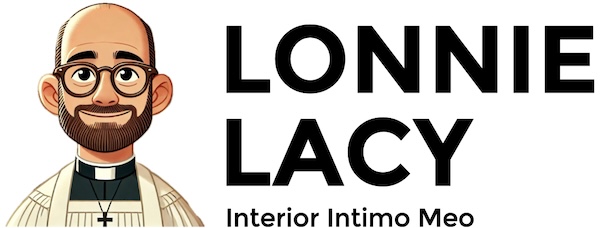St. John’s Episcopal Church
Wednesday Service – Feast of St. Barnabas
Acts 11:19-30;13:1-3
Acts 15:36–41
Today on our calendar of saints
we remember St. Barnabas,
one of the great encouragers of the early Church.
His name was not even Barnabas at first.
It was Joseph,
a Levite from Cyprus.
But the apostles gave him a new name:
“Barnabas,”
which means “Son of Encouragement.”
He had sold a field,
given the money to the Church,
and from the very beginning,
his life was marked
by generosity,
openness,
and grace.[1]
It was Barnabas
who first stood up for Paul
when no one else would.[2]
The others were afraid of Paul—
this former persecutor of the Church—
but Barnabas looked past the fear
and saw the possibility of something more.
He believed in Paul
before anyone else did.
It was also Barnabas
who went and found Paul in Tarsus
and brought him to Antioch,
where the two of them spent a year
teaching and nurturing
what became one of the great hubs
of the Christian movement.[3]
Together,
they were sent out by the Church in Antioch
to spread the gospel across the region.
Together,
they proclaimed, baptized, taught,
and built up communities of faith.
Barnabas and Paul:
a holy partnership,
bound by a shared calling,
a shared trust in Jesus,
and a shared love for the Church.
* * *
But there’s a part
of Paul and Barnabas’ story
we do not often hear.
You would think that
with all that history,
with all that shared ministry,
their friendship would have lasted forever.
But not so.
In fact,
it fell apart.[4]
Acts tells us
that when Barnabas wanted to bring Mark
on their next missionary journey,
Paul refused.
Mark had left them partway
through their previous journey,
and Paul was not willing
to take that risk again.
But Barnabas—ever the encourager—
believed in giving Mark a second chance,
just as he had once
given Paul a second chance.[5]
And so the two of them—
these giants of the early Church—
had a “sharp disagreement.”
That is what Acts calls it.
Not a minor squabble.
Not a polite difference of opinion.
A sharp disagreement.
And they parted ways.
Paul went off with Silas.
Barnabas went off with Mark.
And the work of the gospel went on.[6]
* * *
There is something profoundly painful
about that story.
We do not know
if they ever reconciled.
There is a hint later in Paul’s letters
that he eventually came to value Mark again.
He even asks for Mark
to come see him near the end of his life.[7]
But there is no scene
where Paul and Barnabas
sit down over coffee,
has through it all,
and hug it out
like nothing ever happened.
Instead,
they walk in different directions,
carrying the same gospel
in different hands,
on different roads.
* * *
I wonder if you have ever had a falling out like that . . .
not one marked by cruelty,
but by the ache of disagreement,
the stubborn grief
of incompatible convictions.
I wonder if you have ever had to part ways
with someone you loved,
someone you trusted,
someone with whom you once
shared ministry,
or vision,
or even just your life.
It is easy to say,
“Well, breakups happen.
People drift.
Life moves on.”
But you and I both know
it is more complicated than that.
It hurts.
It lingers.
And it leaves us wondering,
“Was there another way?
Could we have done more?”
Sometimes,
the answer is yes.
Reconciliation is often possible,
and we are called to the humble, hard, holy work
of returning to each other
and trying again.
But other times—
and this is hard—
the answer is no.
Or at least,
not yet.
Not here.
Not in this season.
Maybe not even in this life.
Sometimes,
we have to entrust reconciliation to God.
Sometimes,
we have to let someone go their way
while we go ours,
and trust that the Spirit
can still do something good
with all our brokenness.
* * *
But here’s the thing.
Even with Paul and Barnabas’ disagreement,
the gospel did not end.
In fact, it multiplied.
It grew.
It kept going,
carried by two men
who loved Jesus
even if they could no longer
walk side by side.
So do not lose heart
when partings come.
Do not imagine
that all is lost
just because the road has forked.
God can work through staying,
and God can work through leaving.
God can work through harmony,
and God can work through heartbreak.
God can take even the sharpest split
and still bring forth
grace upon grace.
The work is never over.
The mission always continues.
And whatever wedges
find their way into our lives,
whatever distance seems too wide to cross,
the unfailing truth is that
Jesus Christ fills all things,[8]
and in him,
there is no space between us.
Amen.
[1] Acts 4:36–37
[2] Acts 9:26–27
[3] Acts 11:25–26
[4] Acts 15:39
[5] Acts 15:36–40
[6] Acts 15:39–40
[7] 2 Timothy 4:11; also cf. Colossians 4:10 and Philemon 1:24
[8] Ephesians 4:10
